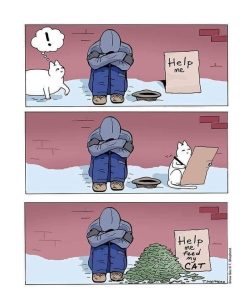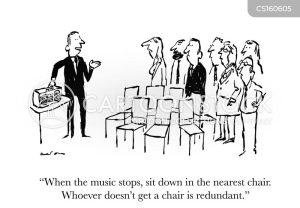Joy, too

In this season of joy and goodwill to all, a persistent issue arises for me. Walking the streets and sidewalks of our prosperous little town, especially in the evening when lights in the store windows twinkle and cash registers ring, it’s always a challenge to ignore the flotsam and jetsam of our social order. People we treat less well than most of us treat animals.
Even wrapped in layers of cashmere beneath a puff jacket, it’s cold out here. How chilled are these folks lying on the concrete under ragged blankets, plastic sheets and newspaper, one has to wonder, if only long enough to step over them or walk past them on the way to somewhere warmer and less cluttered?
In the first 20 years of the 21st Century, homelessness has increased by an order of magnitude. For every unsheltered person in the year 2000, there are 10 today. Not coincidentally, for every billionaire back then, there are 10 mini-Musks currently lording over us. Do we doubt the two are related?
Can it be that prosperity itself causes homelessness? We note there is evidence the problem of the unhoused is greatest in the wealthiest parts of the country and correspondingly less common where the economy is poor. The reason: the cost of housing.

Quoting The Obvious Answer to Homelessness by Jerusalem Demsas in the December 12, 2022 issue of The Atlantic: In their book, Homelessness Is a Housing Problem, the University of Washington professor Gregg Colburn and the data scientist Clayton Page Aldern demonstrate that “the homelessness crisis in coastal cities cannot be explained by disproportionate levels of drug use, mental illness, or poverty.” Rather, the most relevant factors in the homelessness crisis are rent prices and vacancy rates.
That study shows nationally the areas of greatest homelessness are the most prosperous; conversely, areas of poverty have substantially lower numbers of street people. It seems counter-intuitive until suddenly it doesn’t. Prosperity is pricing people out of places to live.
The article cites a vivid correlation with a game of musical chairs, where every rise in the price of housing displaces someone to the streets. However, it’s no game. Rather it is the disquiet of our winner-take-all economy.

Fortunately, there are efforts made to address what can seem to be an overwhelming problem. In my home town of Ashland, Oregon, there is OHRA HERE, a non-profit working to move people from crisis to stability. I urge you to look at what that organization is accomplishing and see for yourself that some mitigation of a humanitarian crisis, if not a complete solution, is possible.
Maybe one less present under the tree and one new contribution to the Option for Helping Residents of Ashland, or whatever similar organization in your local community, might make for one less shivering soul residing out of doors this holiday season. HERE
Thank you for including this post in your newsletter, Dad. And for promoting OHRA – which may spur some of your readers to donate to them, and others possibly to find a similar org in their communities to support. Either way, any evidence that people or groups are making lives better in what, as you say, seems like an overwhelming problem, is heartening in any season.
Thanks for your thoughts about making a difference. We all have to do what we can, but too we need to recognize these are systemic problems that need a political as well as a social commitment to address. I greatly admire organizations like OHRA for stepping up. Our political leaders not so much.